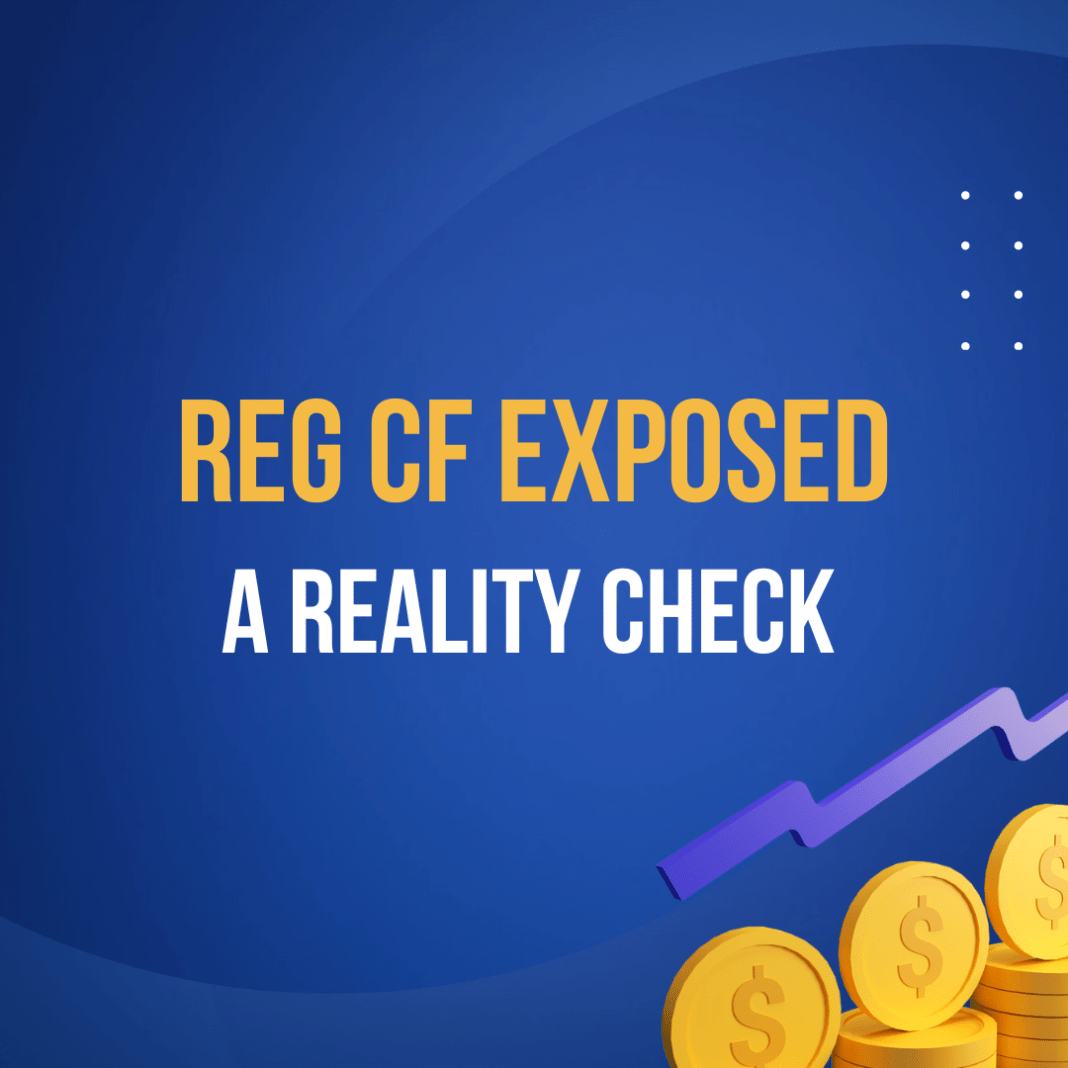What is REG CF (Regulation Crowdfunding)?
On April 5th 2012 president Obama signed the Jump Start Our Business Act (commonly referred to as “The JOBS Act”) giving the SEC 274 days to write up the necessary rules and regulations. The main purpose in the implementation of the JOBS Act was to stimulate the creation of jobs through small business access to capital.
The JOBS Act substantially changed a number of laws and regulations making it easier for companies to both go public, and to raise capital privately, helping them to stay private longer. Changes include exemptions for crowdfunding, a more useful version of Regulation A, generally solicited Regulation D Rule 506 offerings, and an easier path to registration of an initial public offering (IPO) for emerging growth companies.
The titles of the bill that make equity crowdfunding work are:
· TITLE II – Access to capital for job creators (REG D)
· TITLE III – Crowdfunding (REG CF)
· TITLE IV – Small company capital formation (REG A+ or mini IPO)
REG D allows the issuer to raise unlimited funds from accredited investors only meaning in essence from a select few rich people. REG D 506(b) does not allow for “general solicitation”. REG D 506(c) does.
REG CF allows issuers to raise up to $5M from both accredited investors and non-accredited investors (the general public) but is subject to limitations. There are no investment limits for Accredited Investors.
REG A+ allows the raising of funds ($20M Tier 1 and up to $75M Tier2) from both accredited and non-accredited investors.
The SEC approved the lifting of the general solicitation ban on July 10, 2013, paving the way for the adoption of REG D which went into effect in September 2013. Following this was REG A+ which went live during June 2014 – 2 years after the signing of the Jobs Act – and finally the long anticipated (and most beneficial to small business) REG CF on May 16th 2016 – more than 4 years since the signing of the Jobs Act!
What is a REG CF Portal?
In essence, A REG CF portal is an intermediary who provides the Technology Stack to allow the facilitation of transactions between issuers and investors. REG CF portals are regulated by the S.E.C. and go through an approval process with FINRA before being allowed to host issuers. There are over 80 registered portals, but less than 30 are actively trading. My understanding is that none are profitable.
How Much Does it Cost?
Portal operators charge differently :
Some charge a percentage of funds raised (success fee) normally in the range of 6% – 8.5%. Some want 2% in warrants too.
Some charge a flat “hosting fee” of $2,000 – $5,000 per month, plus 1-7% of total funds raised.
Some charge a hosting fee only.
For a REG CF offering of $5M expect to spend up to $50,000 for a crowdfunding marketing agency.
Digital ad costs vary project-to-project, but it’s quite normal to spend at 5%–10% of your funding target on digital advertising alone.
Expect total costs of a REG CF raise to be around 20% of your raise.
Timeline: 90-120 days.
Note: Most REG CF portals offer what is known as a rolling close whereby you can set a minimum funding target of let’s say, $25k and once reached, you can begin drawing funds from escrow and redeploying some of the money into future marketing.
*The typical portal captures and owns YOUR data!
A Realty Check
The “Success” Metrics
One of the most misleading aspects of crowdfunding success lies in how campaigns are reported and celebrated. For instance, an issuer aiming to raise $5 million on a platform like StartEngine can set a minimum goal of only $25,000 and once that goal is reached, the issuer can draw funds from escrow, but, the campaign is reported as a “success.” by all and sundry. Here’s the kicker: even if the campaign only raises $50,000 in total – just a fraction of the original $5 million target – the industry still celebrates this as a win.
How Fu**ed up is that?
In reality, such campaigns are far from successful. Yet, crowdfunding platforms report these underwhelming results as part of their success metrics, skewing the data to make it appear as though most campaigns succeed. In fact, this manipulation of numbers can mislead both founders and investors, setting unrealistic expectations.
Why This Matters for Founders
For many first-time founders, crowdfunding offers a hopeful alternative to traditional venture capital, promising access to a wide network of investors without the usual barriers. However, this rosy picture often fails to account for the real challenges of equity crowdfunding. Founders may assume that because they’ve listed their campaign on a major platform, investors will come flooding in. This couldn’t be further from the truth.
As one industry expert points out, only about 10% of investors on a platform typically invest in campaigns they weren’t initially attracted to. This means that relying solely on the platform’s user base is a recipe for failure. Without a robust, independent marketing strategy, founders can find themselves hitting the minimum goal but never getting close to their true funding target. Even worse, they may have already spent considerable time and money promoting the campaign, only to see minimal returns.
Investors Are Misled Too
It’s not just founders who are duped by these inflated success rates. Investors, particularly non-accredited ones, are often lured into campaigns with false confidence. They see the statistics: hundreds of campaigns “succeeding,” millions raised, and feel that they too can get in on the action. But these investors may be oblivious to the fact that many of these “successful” campaigns fall well short of their targets, raising only a token amount compared to their goals.
Moreover, equity crowdfunding often presents itself as a democratized, inclusive way for the average person to become an investor. However, the reality is that only a small fraction of campaigns manage to offer meaningful returns. Many investors are left holding equity in startups that never truly gained enough traction.
The Crowdfunding Mirage
At its core, equity crowdfunding is a numbers game. Success stories like Boxabl and Revolut, which have raised tens of millions of dollars, are outliers in a sea of much smaller raises. The majority of campaigns struggle to get funded, and even those that do raise capital often fall short of meaningful success. This is exacerbated by the industry’s tendency to highlight the “successes” while downplaying or completely ignoring the many campaigns that barely raise enough to cover their costs.
To put this into perspective, the average crowdfunding raise under Reg CF is less than $100,000. This is a far cry from the millions founders often expect, and investors often invest with little understanding of the inherent risks.
In fact, just last week, I was looking at live data from data aggregator KingsCrowd, and of the five hundred or so live REG CF deals at the time, the top 50% of those campaigns had raised little over $2,000 on average.
Very latest figures are quite dismal too.
“The average amount raised for each Reg CF campaign in August 2024 was $51.8k, a 7.7% change from the prior month ($48.1k) and a -35.3% change from the same month last year ($80.1k).” Kingscrowd
My question now is ” Why only 500 live deals?!? What? Eight and a half years to get to only 500 live deals on the go? WTF.
As of 2023, there are approximately 33.2 million small businesses in the United States, according to data from the U.S. Small Business Administration (SBA). These small businesses make up 99.9% of all U.S. businesses, showing how vital they are to the economy.
In terms of startups, estimates vary, but about 1 million new businesses are started annually in the U.S. However, not all startups are classified as high-growth or venture-backed businesses. Many are small businesses launched by individuals or teams, and these range across a wide array of sectors.
Small businesses and startups contribute significantly to employment, creating nearly 47% of the private workforce.
Something is seriously wrong here. I’ll address this, and more in a future article, where I’ll include why most in the traditional financial services industry view equity crowdfunding as bottom of the barrel financing. Here’s a little teaser “The crowdfunding industry, knowingly, or unknowingly positioned REG CF that way.”
Equity crowdfunding, particularly under Reg CF, is a valuable tool for some, but, it is not the golden ticket to capital that many believe it to be. The numbers are often massaged, leading both founders and investors down a path of false hope. The stark reality is that without significant marketing efforts, a compelling offer, and a clear understanding of how crowdfunding platforms really operate, the likelihood of meaningful success is low.
If you’re a startup founder or investor, the truth is that the crowdfunding road is much tougher than advertised. Instead of being misled by inflated statistics, make sure you’re prepared for the long haul, and always scrutinize the numbers behind the “successes” that the industry celebrates.
Furthermore, the reality of returns for investors is often far less glamorous than advertised. While there are certainly success stories of investors who have made significant profits, these are often the exception rather than the rule. Many REG CF investments are highly speculative and carry substantial risks, including the possibility of complete loss.
It’s also important to note that the costs associated with REG CF can be significant. Companies must pay fees to crowdfunding platforms, legal counsel, marketing agencies, escrow fees, transfer agents, and other professionals involved during the process. These costs can quickly erode the potential returns for both the company and its investors.
While REG CF can be a valuable tool for some startups, it’s essential to approach it with a realistic perspective. Founders should be prepared to invest significant time and effort into their campaigns, and investors should be aware of the risks involved. By understanding the true nature of REG CF, both founders and investors can make more informed decisions and avoid falling victim to the hype.
I think REG CF is here to stay, although it may change shape going forward. It has made significant contributions to the economy and society as a whole. The industry now needs to step up its game.
Happy Crowdfunding!



